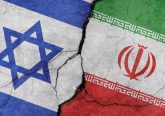 Hylke Dijkstra, Policy making in EU Security and Defense, Palgrave 2013.
Hylke Dijkstra, Policy making in EU Security and Defense, Palgrave 2013.
A dialogue between Professor Anne Deighton, and Dr Hylke Dijkstra.
Hylke Dijkstra, a Marie Curie fellow here in Oxford, has brought out a book that is of considerable contemporary interest as the EU struggles to relocate itself more firmly in the world not only of economics and finance, but of international relations. Congratulations to him!
Security has been a catch-phrase for our times. Military, civilian, human, legal, economic, environmental? Delivered by states, institutions, by NGOs, by citizens, by armies or judges? The term has been defined almost to ‘meaningless-ness’. Classical defence debates have virtually disappeared from our vocabularies. And no roomful of political scientists could ever agree on an exhaustive list of what the most important security and defence threats actually are. So Dijkstra’s book is an ambitious one.
He spends a fair section of it on rather technical aspects of the growing presence of security and defence policy at the EU level, exploring why states delegate security/defence functions to the EU, and how EU officials then manage to navigate a way through the fast-changing international environment. The second half of the book reminds us of the range of security operations with which the EU has been preoccupied in the brief decade since its first attempt to formulate a European Security Strategy. These operations are small but often quite impressive: they have taken place not just around the EU’s borders, but across the world, requiring civilian, legal, military, and diplomatic tools. The technical and specific aspects of the book are for specialists, but Dijkstra is well positioned to deal with a few of the questions that are regularly mulled over by pundits, students and academics alike.
Anne Deighton: You argue that the EU does civilian operations better than military ones. Why do you think this is so? Is the age of military intervention now effectively discredited, and over?
Hylke Dijkstra: The EU’s record in crisis management is both impressive and important. Most people do not realise that the EU has sent soldiers, policemen, monitors, judges, and prosecutors on 30 missions around the globe during the last ten years. In Aceh, the EU has monitored the implementation of a peace agreement. In Kosovo, the EU provides rule of law. Off the coast of Somalia, the EU has a counter-piracy operation. And in Mali, it trains the local armed forces in order to neutralise organised crime and terrorist threats.
You rightly state that some of these crisis management operations are small. The largest EU military operation to date (in Bosnia) had at its peak a total authorised strength of 7000 troops. This is hardly neglectable, of course, yet not comparable with the efforts of NATO in Afghanistan or the United Nations in Africa. Also when real fighting is required, states prefer to use NATO or act unilaterally. The intervention in Libya is a prominent example where the EU as a security actor was all but ignored.
The added value of the European Union is instead to make niche capacity available and to combine different sorts of foreign policy instruments. The EU is well-positioned to provide third countries with development aid, technical assistance, preferential trade agreements, and political mediation. If the EU combines these instruments with deploying soldiers and policemen to provide stability, it can provide important contribution. Combining foreign policy instruments is, however, neither straightforward nor easy to do.
AD: Is it still the case that, despite the new structures in Brussels, the old, big powers – France, the UK and Germany – still call the tune in matters of international relations and the EU?
HD: This is an important question that touches upon the core argument of my book. In short, I argue that while the big powers still call the shots when it comes to the traditional military operations, EU officials in Brussels shape to a considerable extent the mandates of civilian missions. I offer several explanations in my book. Most importantly, civilian crisis management is an innovative tool to address foreign crises. While military interventions are probably as old as mankind itself, sending police agents and judges abroad to restore order is really something of the last two decades.
Because it is so innovative, civilian doctrine and standard operating procedures (“the how-to” of crisis management) have hardly been developed. This makes it difficult for the member states, including the major powers such as France, Germany and the United Kingdom, to really understand what is going on. It allows the Brussels bureaucrats leeway while they try to invent the wheel along the way.
Furthermore, it is also important to note that the member states themselves have invested insufficiently in administrative capacity to keep tabs on civilian crisis management. It is telling that they have, for instance, sent three-star generals to Brussels to help plan the EU’s military operations, but only relatively junior diplomats to conduct civilian crisis management. In the national capitals, there is also much more military than civilian expertise.
AD: Has the presidency of Obama made any difference to the balance of power between the US and the EU? Have we become less Atlanticist over the past few years? If US power is indeed ebbing away, can the CDSP fill this political space?
HD: It is quite funny that while President Obama was Europe’s favourite candidate, the EU member states have been very reluctant in helping Obama out when he required support. The closure of Guantanamo Bay is an example. Many Europeans complained about this practice, yet few European states were willing to take in former Guantanamo detainees. European allies have also hardly been enthusiastic about Obama’s policy over Afghanistan. In American eyes, Europeans have failed to step up.
The most observable example of transatlantic tensions in the field of security was perhaps the valedictory speech of Defence Secretary Robert Gates given in Brussels at the midst of the Libyan air campaign in June 2011. Not even three months into the intervention, Gates noted that the Europeans had already run out of ammunition. Europe tried to take the lead over Libya, but it could not do so without American support. Therefore I am sceptical as to whether EU defence policy can fill the political space left by the US when it comes to high-intensity warfare.
AD: And last: are you yourself an optimist for the EU, and its capacity to bring its proclaimed values of multi-lateralism, soft power, and diplomatic skill to the forefront of international relations?
HD: I think that is worth putting things into a broader historical perspective. During the civil wars in former Yugoslavia in the 1990s, the Europeans were clueless about how to bring that conflict to a close. Considering that this was less than two decades ago, it is remarkable that the EU now plays an active role in the area of security and defence. The EU certainly makes a difference, particularly in the Western Balkans where it provides stability through offering pre-accession carrots combined crisis management sticks.
I think that outside the European continent the challenges are a lot tougher than they may seem on paper. Conflict in Africa will not be solved by EU troops flying in for a couple of months or so. It seems that this has been an important lesson for the European Union during the first ten years of its security and defence policy. The EU can positively contribute in the field of crisis management, but it has to be willing to invest in the long-haul. There are no quick gains in international relations.
You can purchase Policy making in EU Security and Defense from Blackwells here.








No Comment